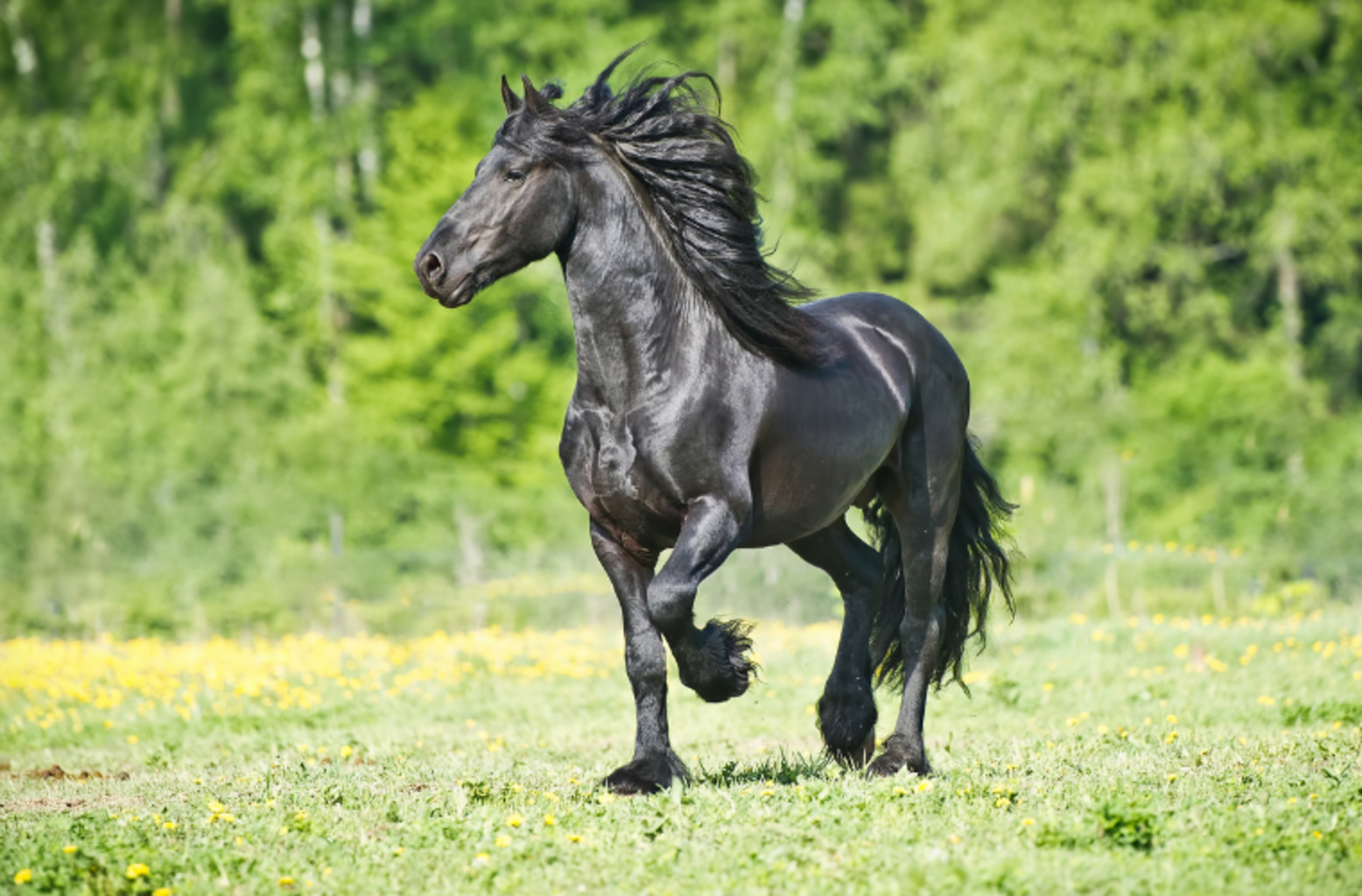Muscle Tension Due to Lack of Nutrients - Part 1
By Amelie Kokorsky
Every rider has those days when their horse does not want to relax. Whether on the lunge or under the saddle - on some days our four-legged friends are simply tense. There can be many causes behind muscle tension. How does muscle tension come about and what can be done about it? Could there be an illness behind it?
A lack of nutrients can lead to muscle tension
The more intensely and often I put the horse under load, the higher the need for relevant nutrients for the muscles. If the horse does not receive enough of these important nutrients it can lead to tension in the muscles, which can be expressed, for example, in the following ways:
- The horse excretes dry manure. The horse droppings are smaller and harder than usual. Most of the time, the horse deposits its faeces more often than usual, so that the rider has to muck out several times.
- The horse has a harder time getting rid of faeces. It often stops, pushes, but does not drop.
- The horse's performance is reduced. It looks more tired and sluggish than usual.
- When touching and/or cleaning the horse shows (slight) defensive reactions.
The important nutrients for the stressed muscles include magnesium, manganese, selenium and vitamin E.
Magnesium is required for healthy muscles, but also for the associated nerves because the tension of the muscles and the transmission of a nervous stimulus require magnesium. Magnesium is naturally excreted in the horse's faeces and urine. But the sweat of the animal also removes magnesium from the body, so that the requirement increases, especially in summer or during intense, sweat-inducing exercise.
Under normal circumstances, the horse compensates for the normal loss of magnesium through food intake. The animal owner should therefore always pay attention to good hay quality, a species-appropriate supply of green cuttings and daily grazing.
A deficiency in magnesium can manifest itself in muscle tension, muscle tremors or muscle cramps. If the deficiency persists over a longer period of time, it can even lead to a breakdown of the muscles.
In principle, there is more likely to be a lack of magnesium than an oversupply, as the horse can usually take in three times the amount of its daily requirement without any problems.
As a supplier of magnesium, Stiefel Mag12 or Stiefel Mag Power Liquid are ideal. Both products can have a positive effect on the horse's performance due to their composition of magnesium and vitamin B12.
Tip: Magnesium can have a tiring effect on the horse. For this reason, magnesium-rich food should always be given after training.

Lameness can easily be mistaken for muscle tension. If the horse organism lacks manganese, this can lead to slight lameness, which the rider initially perceives as tension.
Manganese is involved in the structure of cartilage. If the horse lacks manganese, deficiency symptoms can occur in the cartilage tissue and the animal begins to limp. Manganese can be deficient, for example, if larger amounts of calcium-rich food are given, as calcium can displace the manganese in the organism.
Tip: Many herbs already contain a natural proportion of manganese, so that there is sufficient manganese in the horse's body through targeted herb feeding.
Horses that regularly exercise lose selenium in their urine. The muscles use up vitamin E when they are exerted. Vitamin E binds selenium to itself and both nutrients are excreted together.
It can make sense to compensate for the loss of selenium in physically stressed horses. Nevertheless, one should always be careful not to feed the horse too much selenium, because too much selenium can also lead to poisoning. For this reason, all additional feeds that the horse is fed should be checked for their selenium content.
But you should also keep in mind that the detoxification processes in our horses' bodies require selenium. Therefore, not every supplementary feeding of selenium leads to selenium poisoning! You should just keep an eye on the amount.
Stiefel E-Power Liquid or the Stiefel E-Plus offer good compensation for possible selenium and/or vitamin E deficiency. The products can prevent and compensate for a possible lack of vitamin E caused by feeding. They also contain lysine, an important amino acid for (sport) horses.
Nowadays, many horses are fed haylage or silage every day instead of hay. The haylage no longer contains vitamin E, because vitamin E is damaged when forage is ensiled, for example. Likewise, hay that has been stored for a long time prior to the time of feeding hardly contains any vitamin E.
Oats could be a good source of vitamin E if you feed them whole or directly after they have been crushed, because otherwise vitamin E is also lost. Preservatives that are contained in many animal feeds also destroys vitamin E. On the other hand, however, vitamin E itself is often used as a preservative. For example, it protects oils from going rancid prematurely.
In the horse's body, vitamin E plays a particularly important role in protecting the muscles from highly reactive oxygen compounds. This makes it a very important antioxidant vitamin for the muscles. If a horse is deficient in vitamin E, it can lead to poor regeneration of the stressed muscles. The muscle does not recover properly from the stress and the horse or its muscles are not yet ready for the next training session. If you stress the animal regardless, it can lead to tension. Because of its important functions for the muscles, vitamin E can also be called the essential "muscle vitamin".
For a possible vitamin E deficiency, it is also advisable to feed Stiefel E-Plus Pellet or Stiefel E-Plus Powder. Both products also contain selenium. With its many positive properties and natural vitamins, Stiefel Linseed Oil is also a good support system.
A small "all-rounder" that contains all the important nutrients for the musculture is Stiefel Vitamin Liquid. It contains magnesium, selenium, manganese and vitamin E and is therefore a "complete package" that can have a positive effect on general condition and the muscles.
If there is a major deficiency in one of the many important nutrients, this can be compensated for with the above-mentioned product in addition to Stiefel Vitamin Liquid.
Look forward to part 2: "Muscle tension due to polysaccharide storage myopathy (PSSM)"
Latest reviews
-
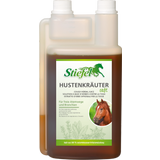 4.9 (14)
4.9 (14)Stiefel Cough Herbal Liquid, 1 l
Bestseller- Made of 100% natural herbs
- To support the respiratory system
- Without artificial flavorings
£14.81 (£14.81 / l)Delivery by July 17
-
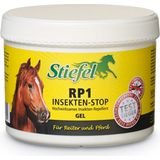 4.9 (7)
4.9 (7)Stiefel RP1 Insect-Stop Gel , 500 ml
-10% Bestseller- Insect & fly protection
- For horse and rider
- Ideal for sensitive areas of the body
£14.12 £15.69 (£28.24 / l)Delivery by July 17
-
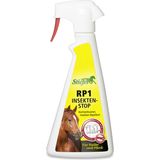 4.4 (5)
4.4 (5)Stiefel RP1 Spray , 500 ml
-10% Bestseller- Skin-friendly
- For large surfaces
- Almost odourless for humans
£14.12 £15.69 (£28.24 / l)Delivery by July 17
-
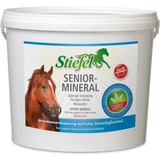 5.0 (1)
5.0 (1)Stiefel Senior-Mineral, 3 kg
New!- Tailored to the needs of older horses
- High-quality source of minerals & vitamins
- Positive effect on the immune system
£26.20 (£8.73 / kg)Delivery by July 17
-
Great Britain: Free standard delivery from £79.90
-
Free
returns Secure payments
with SSL encryption technology

